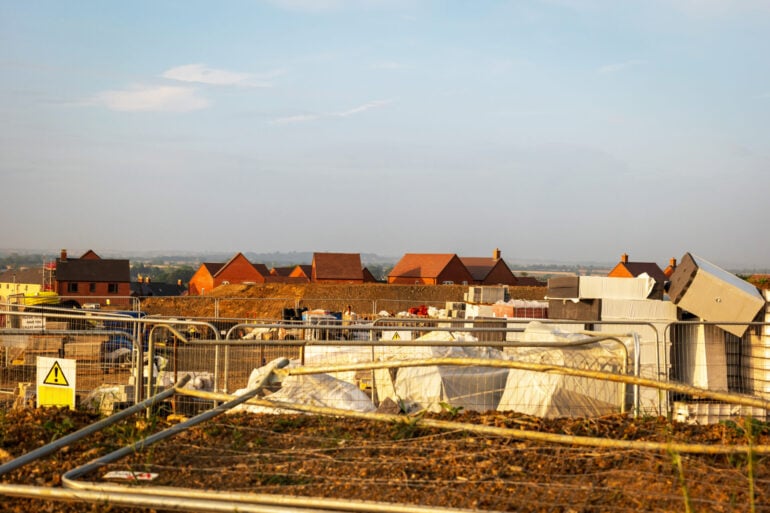Key Cities has called for urgent action to fix the housing shortage and help more homes get built in cities and towns.
In its new report, Turbocharging Housebuilding in Cities and Urban Areas, Key Cities set out what is stopping homes being built and what needs to change to deliver 1.5 million new homes.
The report found nearly 90% of respondents said the shortage of affordable and social housing was “critical” or “extremely critical”.
Over 60% said they had more than 1,000 homes with planning permission that had not yet been built.
Just 6% said the planning system was the main barrier to delivery, with 27% blaming cost and finance.
Key Cities wants a £3bn land and infrastructure viability fund, bringing together money from unspent community infrastructure levy, brownfield grants and new capital from the National Wealth Fund.
The aim is to support the clean-up and infrastructure needed for brownfield and grey belt land.
Key Cities noted that with costs being the main barrier, unlocking this land could help deliver more homes and deal with viability problems, especially where clean-up is expensive or infrastructure is lacking.
The report stated that the definition of affordable rent should change from 80% of market rent to 130% of social rent to reflect local incomes.
This would cut housing costs by nearly 20% and help renters across the country, making homes more affordable and better linked to local wages and house prices.
Additionally, Key Cities called for support for small and medium-sized housebuilders.
According to the report, the ‘medium site’ category should increase from 49 to 99 homes to help more small and medium-sized housebuilders get projects approved and underway.
Councillor Michael Mordey, Deputy Chair and Housing Portfolio Lead of Key Cities and Leader of Sunderland City Council, said: “There is a lot of work to be done to meet the national housing target and to address the existing housing crisis, particularly the supply of quality, affordable housing. In areas of greater deprivation, the need is stark.
“Without urgent delivery of social and affordable housing, the cost of temporary accommodation rises year on year and remains at the forefront of many Key Cities leaders’ minds.
“Whilst there has been a lot of focus on planning reform, councils across the UK have thousands of homes with planning permission that are stalled and not being built, exemplifying that the housing crisis is not just a question of supply, but of delivery.”
Mordey added: “Drawing on experience and expertise from a wide range of cities and private sector housing delivery experts, this report’s recommendations point the way towards an improved model of housing delivery where the Government’s ambitions for housebuilding in cities and urban areas can be met, and housing is not only affordable and delivered at pace but at a better standard for communities across the country.”
Councillor John Merry CBE, Chair of Key Cities and Deputy City Mayor of Salford City Council, said: “This research marks a turning point. It establishes Key Cities as a leading partner in helping the government not just to hit its targets but realise its full impact.
“By exploring the challenges and the barriers faced by city authorities, we hope to present credible and replicable solutions that will benefit communities across the UK regions.”
Pam Cox MP, MP for Colchester, said: “If we’re serious about tackling the housing crisis, we must confront the real barriers to delivery – not just planning, but also cost, infrastructure, and land viability. In places like Colchester we need the government to match our ambition with targeted investment.
“The proposed Land and Infrastructure Viability Fund is a vital step forward, and I fully support efforts to make affordable housing genuinely affordable for the people who need it most.”
Naushabah Khan MP, MP for Gillingham and Rainham, said: “It is clear that we will struggle to hit the government’s target of 1.5 million new homes unless we combat the barriers stalling delivery.
“This report presents bold yet practical solutions. Redefining affordability so rents are tied to local earnings, not inflated market rates, will make homes genuinely within reach.
“A new co-investment model can unlock land, de-risk private capital and give councils real power to shape housing in their communities.”
Khan added: “And by removing restrictive regulations and raising specific industry standards, we can build faster while ensuring homes are fit for the future.
“The challenge is big, yet the opportunity is also great.
“With targeted reforms and genuine collaboration, we can turbocharge housebuilding and deliver homes people can truly afford.”



